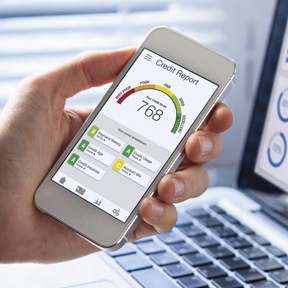May 2022
Managing your credit score takes hard work. It usually has to be at a certain number or range before you can purchase a house, a vehicle, or other big-ticket items. However, if a credit bureau does not have the correct information included in your credit report, it could affect your credit score. Here is some advice on how to report and correct potential errors on your credit report.
What types of errors can exist?
Errors on credit reports can vary, each creating unwanted hassles when you check your latest credit score. One issue could be a credit limit or account balance error. If your account balance is reported as being higher than it actually is, or if your limit is lower than what you are allowed, your score could be affected. Other more severe issues include identity-related errors, such as a wrong address or phone number, name misspellings, or your information being merged with someone else’s credit record. Also, be sure to check if the accounts that are being reported by the credit bureau are all active, as closed accounts can sometimes appear on records and can even be falsely reported as delinquent.
Contact the credit reporting company
The first step in getting your credit report corrected is to contact the credit reporting company where you found the issue. The three major companies in the U.S. are Experian, Equifax, and TransUnion. You can send a letter in the mail, contact the companies by phone, or complete a credit dispute form online via each of their websites. When reaching out, the Consumer Financial Protection Bureau suggests including your contact information, a report confirmation number (if available), a concise list of each error in the report, a request that the incorrect information be removed or corrected, and a copy of the report with the issues highlighted.
Contact the source of the error
You can also choose to contact the source of the error, or the organization that provided the credit bureaus with your credit history. This could include credit card companies, debt collectors, apartment landlords, and more. If you have any type of loan — whether it is for a mortgage, vehicle, education, etc. — consider who could be providing the credit bureaus with your information. Once you’ve determined where the false information could be coming from, contact them and find out how to dispute the errors.
Next steps
Once you have filed a dispute with a credit reporting company, they are required to investigate and send all necessary documents to the source that provided them with your information. The company can either choose to correct your information or determine that your claim is frivolous. If your information is corrected, the source must send your updated details to the credit reporting companies so your credit report will be corrected. If your dispute is deemed frivolous by the credit reporting companies, all hope is not lost. According to the CFPB, “you can request the credit reporting company to include a statement explaining the dispute in your credit file. This statement will be included in future reports and provided to whoever requests your credit report.”
An up-to-date, correct credit report can be the difference between a Poor or Fair credit score and a Very Good or Excellent one. Be sure to monitor your credit report frequently and check for any potential errors. Once a year, you can get your credit report for free at www.freecreditreport.com.
